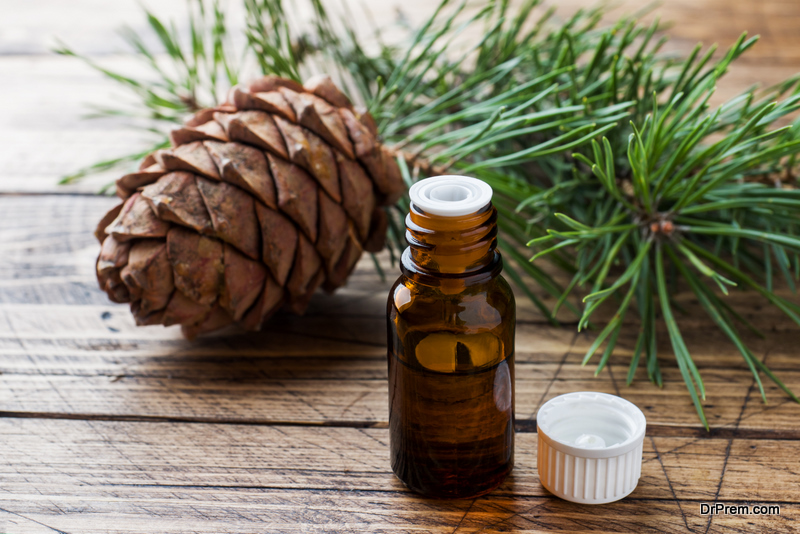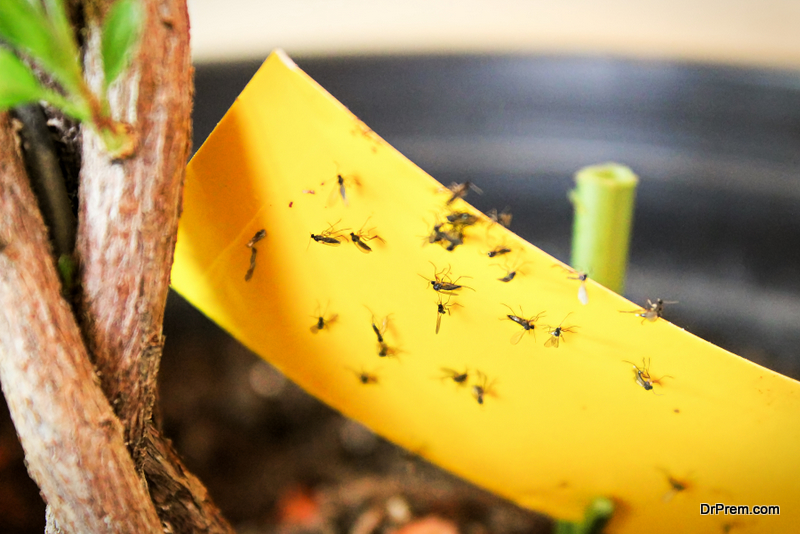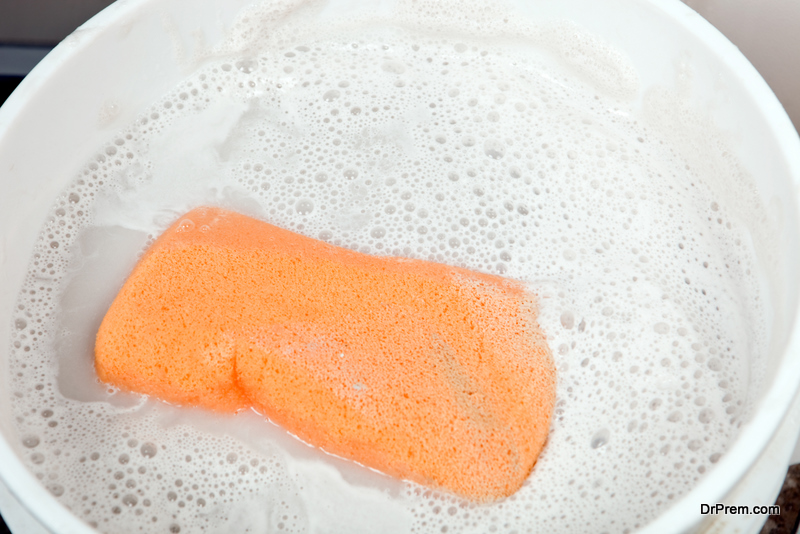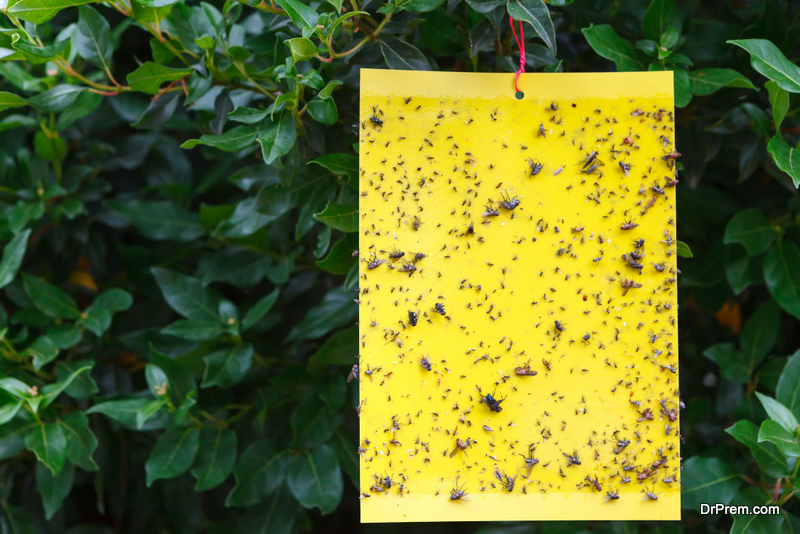Green options that protect your family and the environment
Pest control is the management of unwanted species that have detrimental effects to humans. For rodents, insects, and birds. They are considered pests when they have negative effect to man and its environment.
Pest management involves the use of different methods. Among these methods include cultural, chemical, or biological means.
The chemical method of pest control is highly efficient and effective. Pesticides and insecticides are formulated in a way to achieve fast results when it comes to exterminating pests. But in spite of its advantages, it comes with disadvantages that are not easy to ignore.
The technicians from Pro Pest Control based in Sydney’s CBD share easy eco-friendly pest control methods. They also discussed the impact of pesticides on the environment.
Environmental Impacts of Pesticides
 Pesticides are mostly inorganic substances that is used for pest extermination. One big advantage is it successfully kills targeted pests in just a span of seconds to a few minutes.
Pesticides are mostly inorganic substances that is used for pest extermination. One big advantage is it successfully kills targeted pests in just a span of seconds to a few minutes.
However, it should be noted that in spite of its effectivity, it also has some setbacks. For example, using a single formulation too often creates pest resistance and pest resurgence.
In addition, when pesticides are sprayed, not all of these chemicals do not directly to the targeted pests. Over 90% of it stay in the air, get carried by the wind and come in contact with non-target plants and animals.
This is where the environmental concerns of pesticides arise. Here are some examples of how the chemical approach to pest control negatively impacts the different elements in our environment:
1. Animals
Bees, birds, and frogs are dying in large numbers. When bees die in droves, there is little to no plant pollination. Since 2006, the bee population has reduced by 30%, and scientists refer to it as ‘colony collapse disorder.’ In the contaminated water, young male tadpoles are becoming female, which offsets the population’s gender balance. Pesticides in aquatic environments have endangered a lot of fish species.
2. Soil
Using pesticides decreases the biodiversity of the soil. It means the quality of the earth is low. It is making water retention hard, lowering the crop production in that soil. Introducing chemical and synthetic components in the ground makes it challenging to support plant growth.
3. Plants
The chemicals used in manufacturing pesticides hinder nitrogen fixation in plants. Many large plants need this process to grow. Without proper nitrogen fixation, crop yields drop.
4. Water
Almost all living organisms need water for survival. Contaminating water limits the drinkable and useable water by humans and animals. Aquatic life also suffers when pesticides contaminate the water.
Health Risks Associated with Pesticide Exposure
 It is no question that pesticides have a negative effect to our health. This is mainly because these chemicals are not meant for us.
It is no question that pesticides have a negative effect to our health. This is mainly because these chemicals are not meant for us.
When it comes in contact to us, it will surely have a negative effect to our system. For example, it may have a short or acute effect. Or it can have a long-term effect that will show months or years after exposure.
The adverse effects basically depend on several factors. For instance, the type and amount of chemicals where we have been exposed. Age is also one of those factors. For instance, infants are more susceptible to the dangers of these chemicals.
Here are some of the acute and chronic health effects of pesticides to humans:
- stinging eyes or excessive eye watering
- rashes and blisters
- loss of appetite and/or thirst
- nausea
- dizziness
- sweating
- weakness or fatigue
- restlessness
- nervousness
- blurring of vision
- insomnia
- vomiting
- diarrhea
- loss of reflexes
- uncontrollable muscular twitching
- unconsciousness
- death
Certainly, these are well founded reasons for the preference of the Integrated Pest Management. Also, it has urged pest control companies to change. For example, adding eco-friendly treatments in their services.
Eco-Friendly Pest Control Methods
There is always a better way to do something. So, we must apply the best methods in pest control to protect our environment.
So, how do you think you can exterminate pests in an eco-friendly manner? Here are 10 ways on how to do it:
1.Use cedar oil
 Cedar oil is a natural extract that repels ants, cockroaches, and mosquitoes. Moreover it is non-toxic and pet friendly. It is safe to apply it on your pet’s beddings and surfaces around the houses to deter the pests.
Cedar oil is a natural extract that repels ants, cockroaches, and mosquitoes. Moreover it is non-toxic and pet friendly. It is safe to apply it on your pet’s beddings and surfaces around the houses to deter the pests.
2. Wash, vacuum, clean
Clean carpets, rugs, upholsteries and other home furnishings regularly. It helps you get rid of dust mites, carpet beetles, and other tiny pests without the use of pesticides.
3. Use rat traps instead of rat baits
Rat traps don’t use any chemicals to get rid of your rodent problem. The fewer the chemicals used, the better our environment.
4. Implement solar-powered pest control
Solar power is a clean energy source, powering your equipment to send vibrations to the ground to scare away pests. You get to handle your pest problem without harming the ecosystem.
5. Have sticky boards for insects like houseflies
 The idea is to avoid pesticides. Most sticky boards are flammable or recyclable. Natural glue is used for the sticky boards.
The idea is to avoid pesticides. Most sticky boards are flammable or recyclable. Natural glue is used for the sticky boards.
6. Minimize using insect sprays
Sprays contain concentrated amounts of pesticides that contaminate surfaces. Insect sprays also cause air pollution, and they should be avoided.
7. You can create your sticky traps
Using natural products to handle your pest infestation is better than having a cocktail of chemicals around your homestead. In addition, the traps are easy to make at your home and cheaper than manufactured pesticides.
8. Keep your woolen garments in the freezer
Freezing kills larvae from your garments. More importantly, this method doesn’t need any chemicals or substances to kill pests. It works for your convenience.
9. You can use soap water, especially for ants
 This is a simple, readily available means to control pests. So, when you mix soap with water and use it to kill ants, you get rid of them without adding toxins into the atmosphere.
This is a simple, readily available means to control pests. So, when you mix soap with water and use it to kill ants, you get rid of them without adding toxins into the atmosphere.
10. Drown slugs in beer in your garden
Beer has been around for centuries and has not yet been harmful to our environment. So, you can opt to use beer instead of other harmful substances to kill your pests. Meanwhile, you can also enjoy a cold one as you safeguard your garden.
Takeaway
We are all shifting to greener ways of living, even in pest control. Meanwhile, as we go about our daily lives, we always choose what’s best for us and our families. Similarly, it is vital to keep our environment safe.
On the other hand, the chemical method of pest control shouldn’t be totally disregarded. That is to say, we must not forget how effective it is, especially for mild to severe cases of pest infestation. But we should not always have it as our first or only option.
Most importantly, we should always remember that prevention is still the best method of pest control. When we use natural and eco-friendly methods to, we are not only protecting ourselves from pests. So, let’s choose these options as it is one way of protecting the environment as well.
Article Submitted By Community Writer




